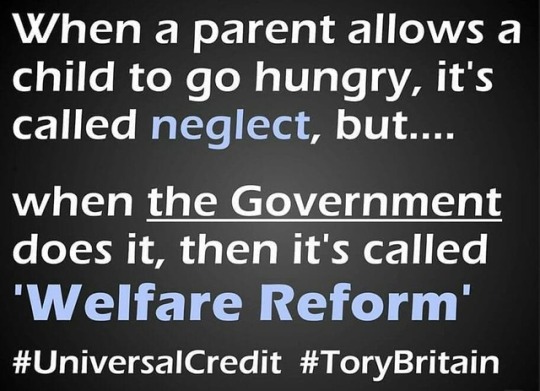#WelfareReforms
Text
UK Government's £299 Cost of Living Boost

Providing Relief Across the UK
This third of up to three Cost of Living Payments will be disbursed to eligible individuals receiving means-tested benefits between February 6 and February 22. It forms a critical component of a comprehensive support package that has provided much-needed relief to households since July 2022.
A Closer Look at the Support Package
The announcement of the £299 Cost of Living Payment comes in the wake of the government's commitment to allocate £104 billion to cost of living support between 2022 and 2025, as outlined in November's Autumn Statement. This substantial allocation, equating to approximately £3,700 per household, encompasses various measures:
- Uprating benefits by 6.7%
- Increasing the state pension by 8.5%
- Elevating the Local Housing Allowance by £7 billion
Shaping a Brighter Economic Future
The government's approach reflects a pivotal shift in economic policy. The focus is transitioning from a period of significant government intervention, high spending, and borrowing to a new era characterized by long-term decision-making aimed at strengthening the economy and empowering individuals and families to build a more prosperous future.
Next-Generation Welfare Reforms
As part of this commitment, the Department for Work and Pensions (DWP) plans to introduce the next generation of welfare reforms, encompassing comprehensive employment and health support. The £2.5 billion Back to Work Plan aims to benefit over a million people, including individuals with disabilities, health conditions, or a history of long-term unemployment.
A pivotal element of this plan is the Chance to Work Guarantee, which will remove barriers to employment for numerous claimants, offering them the opportunity to work without the fear of reassessment or the loss of health benefit top-ups.
Automatic Payments for Eligible Recipients
The £299 Cost of Living Payment for February 2024 will be automatically processed by the DWP and HM Revenue and Customs. Eligible recipients need not apply or take any action to receive this payment.
A History of Support for Vulnerable Households
The government's efforts to support vulnerable households have yielded results. Since 2010, there has been a reduction of 1.7 million households in poverty. As part of ongoing support, the Local Housing Allowance increase, set to benefit thousands, will come into effect in April 2024. This £7 billion investment over five years will provide an £800 annual boost to approximately 1.6 million households.
Additionally, the DWP encourages low-income pensioners who have not yet received Pension Credit to check their eligibility, as they may still qualify for the February cost-of-living payment.
Key Details for Eligibility
For individuals wondering if they are eligible for the Cost of Living Payment, here are some important details:
- Recipients' bank accounts will use their National Insurance Number followed by DWP COL as the payment reference. The HMRC payment reference will be HMRC COLS.
- To qualify for the Cost of Living Payment from DWP, individuals must have received a payment for a qualifying benefit between November 13 and December 12 or at the end of an assessment period within these dates.
- The full list of benefit recipients that qualify for the third Cost of Living Payment includes those who receive Universal Credit, income-based Jobseeker’s Allowance, income-related Employment and Support Allowance, Income Support, Working Tax Credit, Child Tax Credit, or Pension Credit.
A Supportive Future
The £299 Cost of Living Payment is a vital part of the ongoing efforts to provide much-needed financial relief to households across the UK. It is one of three means-tested Cost of Living Payments made over the course of 2023/24, with a total value of up to £900.
The government's commitment to supporting vulnerable families extends to England's councils, with a substantial £842 million extension to the Household Support Fund, aiming to provide the further cost of living support.
For additional information, recipients can refer to the Department for Work and Pensions press notice on the £2.5 billion welfare reforms announced in the Autumn Statement here. The Chancellor's Autumn Statement is also available here. Eligibility details can be found above, and any queries can be reported through gov.uk starting from February 23.
Sources: THX News & Department for Work and Pensions.
Read the full article
#AutumnStatement#CostofLivingPayment#EconomicSupport#EligibilityDetails#financialrelief#GovernmentPlans#HouseholdSupportFund#UKHouseholds#VulnerableHouseholds#WelfareReforms
0 notes
Photo

Macron narrowly won a no-confidence vote as protestors shut down France
French president Emmanuel Macron narrowly survived a no-confidence vote on Monday (March 20) in the National Assembly, less than a week after his government forced through an unpopular pension reform bill that raised the French retirement age from 62 to 64.Read more...
https://qz.com/macron-no-confidence-vote-retirement-age-protests-1850244395
#macron#money#emmanuelmacron#nicolassarkozy#philippemartinez#pension#economy#politics#welfarereform#labor#elisabethborne#yellowvestsmovement#c389ricciotti#finance#grandcroixofthelc3a9giond27honneur#socialissues#olivierdussopt#marinelepen#Diego Lasarte#Quartz
0 notes
Photo

#childhunger #neglect #welfarereform #torybritain #nevertrustatory #toriesareshit https://www.instagram.com/p/B1Wlmm3HNx_/?igshid=imwdnw1g5pwf
0 notes
Text
Getting Started
I stumbled upon an blog that has to do about my topic, welfare reform, which was named, “Strengthening Welfare Reform” written by JENNIFER PALMIERI. It was a little bit short, but got a lot of great information out of it. The subject was to accelerate job replacement and moving more Americans from welfare to work. Getting the waivers passed for the TANF program it will allow more jobs for Americans lowering the amount of people on welfare throughout the states. This blog was written by Jennifer Palmieri who was the Director of Communications for Hillary Clinton. This blog is about getting this waiver passed to allow more jobs to be created and get people off of welfare. The audience is anyone who is concerned about people being on welfare and or wanting more people to be able to be on welfare. For example, someone may want less people on welfare so one could look at this getting more people off welfare while another person could say that this would get more people off welfare letting more people go on welfare. The perspective of the blog is through Jennifer Palmieri as she states a new policy that revealed information on how they are going to create jobs etc. A new policy from the Department of Health and Human Services will now allow states to test it out as it will create more jobs for humans on welfare and be able to get them a job. I do agree with this blog as I feel like a lot of people are abusing the welfare system and are taking the privilege away for the people that actually need it. The best way is too create jobs and other opportunities to get these people working again and not having to rely on the states money.
On my twitter account, I follow Barack Obama, Donald Trump, and a couple health care and welfare accounts. I followed Obama because he was the last president and he was all for welfare, while Donald Trump is on a whole different side wanting to create jobs, which is awesome to hear for the Americans who are unable to find a job and live freely. Donald Trump throughout the last couple of weeks have been tweeting that he has been meeting with top industrial leaders to create more jobs for the American people. A lot of the huge industries are agreeing with Trump and creating tens of thousands of new jobs, which will hopefully lower the amount of people on welfare.
1 note
·
View note
Photo

Trump Bombs Syria and Welfare in the Same Week. Hit the Link and tell me What You Think. 👆🏿👆🏿#presidenttrump #bombs #syria #welfarereform #fridaythe13th
0 notes
Text
Shelter calls on MPs to help 1 million households at risk of homelessness | Shelter blog
7 things to consider when communicating about welfare You may have seen mine and Paul’s previous blogs about our campaign to soften public attitudes towards welfare, so that political parties will feel less emboldened to implement further cuts, and will work towards improving the system going forward. We’ve just finished our second pilot of the campaign. We learnt from our target audience and applied some behaviour change theory to our campaigning approach. Here’s 7 things we’ve learned (in no particular order). Be authentic. The public can tell when … MORE... #Campaigns #Campaigning #Welfare #WelfareReform
http://blog.shelter.org.uk/2017/10/7-things-to-consider-when-communicating-about-welfare/ Conservative Party Conference: Government rallies around renters! A year ago, Theresa May used her speech at Conservative Party Conference to commit to intervening in markets which aren’t delivering as they should. At the time, we wrote on this blog about how this could potentially be good news for the millions of renters who are battling a dysfunctional rental market. It seems we were right to hopeful. At the weekend the Secretary of State for Communities and Local Government announced a range of measures aimed at improving … MORE... #Campaigns http://blog.shelter.org.uk/2017/10/conservative-party-conference-government-rallies-around-renters/ BAME homelessness matters and is disproportionately rising – time for the Government to act Yesterday’s Government Race Disparity Audit highlights the disparity among homeless households. But this isn’t inevitable and its high time it was addressed. Ending the freeze to local housing allowance would be a very good start. The Government’s Ethnicity Facts and Figures website, launched yesterday, tells us nothing new about race and homelessness. The data was already there. But it provides a focus to ask why race is still affecting people’s housing options in 21st century England. Let’s face the facts:… MORE... #Campaigns http://blog.shelter.org.uk/2017/10/bame-homelessness-matters-and-is-disproportionately-rising-time-for-the-government-to-act/ Shelter calls on MPs to help 1 million households at risk of homelessness Shelter is asking MPs to take action in the Autumn Budget and call on the Chancellor to end the freeze to Local Housing Allowance (LHA) – the support low income families receive for private rented homes. Why? Around 1.2m households in the private rented sector receive LHA (a rate of housing benefit for private renters) and about one-third of these households are in low-paid jobs and require LHA to top up their rent. Since 2011, government reforms have slowly lowered … MORE... #Campaigns http://blog.shelter.org.uk/2017/10/shelter-calls-on-mps-to-help-1-million-households-at-risk-of-homelessness/
0 notes
Photo

It's one of assosiation which hv a great plan, right purpose, people economic's mission. They ready to act and responsibility. Good Luck 👌😇 www.tocbi.blogspot.co.id #follow #tocbi #transporter #infobandung #joint #welfarereform #great #like4like (at Adiabel Group)
0 notes
Photo

This weekend, on the BART ride to San Francisco and on the walk to and from my destination, I listened to this fascinating debate on Intelligence Squared U.S.: The Universal Basic Income Is The Safety Net Of The Future. (It’s also available as a podcast on iTunes.) It was so thought-provoking that my walk turned into a long one, as I stopped every few blocks to sit down and scribble some notes in response to what I heard... #basicincome #intelligencesquared #welfarereform #economics #thomaspaine #agrarianjustice
0 notes
Text
The Case for a Universal Basic Income
The conversation on a Universal Basic Income is heating up. The idea that every adult citizen should be paid a minimum wage, regardless of their age or employment status, is a policy that would have huge effects on our economy, productivity, poverty and citizen happiness ratings. It is also one that has the conservative middle class terrified that they might soon be paying for the less motivated to quit work and take the easy road instead. But as countries like Finland and Holland begin trials, is it time the UK began to think about a UBI?
A universal basic income isn’t a new idea, nor is it a very complicated one; every adult, employed or not, would receive a monthly payment roughly equivalent to national minimum wage. Put very simply, every citizen would begin each month on a level playing ground. The scheme is becoming increasingly relevant as machines replace people in mundane and often un-necessary jobs. More urgently, we face a world in which many institutions don’t have the funding required to hire enough staff.
Automation and the idea of entirely replacing workers is a long way off, but it’s a possible future that needs to be planned for. The word ‘sinecure’ comes to mind, and roughly, it means a job given purely as an excuse to award a wage, rather than to reach an end goal or product. Some economists argue that within the near future, not everyone will need to work. But how do we justify paying people without them earning it? Historically, unemployment has been on the rise, but steadily more and more public industries can’t afford the staff they require. So how to we keep people busy, entertained and making the most of themselves in a society where the meaningful jobs aren’t always available? Its commonly thought that people need to remain employed to be useful to society, but what if they were paid to do something else instead?
Many people argue that a free income will stop people striving for better. Others argue UBI would only provide enough necessary to survive. It wouldn’t provide for a life anything above basic human needs. For that newer TV or faster car, working would be required to make up the shortfall, protecting the incentive to strive for better. A five year trial in the 1970’s found that hours worked only dropped by 10% in fact, and this was mostly due to young workers choosing to finish school, since they no longer had to get into work to provide for their families. REF 1.
Anti UBI campaigners are concerned that a UBI would undermine the value of jobs. But around the world, we see organizations and institutions that are experiencing shortages in vital staff, and its clear that these vacancies do exist. It’s not because the people willing to do them aren’t available. It is because the organizations, especially those that rely on government funding, cannot afford to hire everyone they require. This comes at a huge cost to the effectiveness of our schools, hospitals, pensioner care and emergency responses.
Volunteers and care workers are among the worst affected but the problem exists in many industries. Stay at home parents, social care, fire fighters, first aiders. Fortunately, many people within our society are willing to give their time and knowledge for free, but the system neither repays, nor respects them. Volunteer organizations can receive extremely high numbers of applicants and in some places people are even paying to volunteer. But many of these jobs are ignored and undervalued as a genuine contribution to society. The idea that someone would give something for free is a notion that doesn’t fit with the typical description of a ‘job’. The situation is so bad that as a receiver of the unemployment benefit, volunteering will interfere with your availability, thus resulting in the suspension of your benefit. It’s hardly an incentive to help out.
We are led to believe that these workers are not essential to the running of our country. If a jobs not paid then no one in their right mind would want to do it. Volunteer work in particular is viewed as something done only by the retired, and those on community service. But all you need to do is take a look around our country and its clear how many places could benefit from the extra staff they just cannot afford to hire.
A UBI based system would support and facilitate a society in which workers are reimbursed in a way that recognizes their contributions. With a basic guaranteed income, we would have hospitals, prisons and schools supplied with the staff they need at no extra costs. Staff that really want to be there; resulting in a higher work ethic and increased productivity. UBI would give citizens options. Part-time workers would have the security of full time staff. Parents could choose between work and childcare. Carers of the sick and elderly would be able to manage their time and return to jobs only when they can.
Another argument for the UBI relates to interning and creative industries. An initiation period of low or no paid work to get a foothold in a career is becoming increasingly common. With recent welfare reforms, benefits won’t cover you while you put in the hard work, unpaid, no matter how respectable the job. And if you can’t rely on family support or savings to cover living expenses, it quickly forces such careers out of reach for many people. It’s a subtle form of gentrification that keeps poorer communities out of middle class jobs. A UBI would open these jobs to those who can’t support themselves during the initial years, helping people into more meaningful and lasting careers. Doing so could also create openings in lower paid jobs, driving employers to pay more. These are just a few areas in which a universal basic income could greatly benefit our society.
Universal Basic Income is possibly the boldest idea of our time and one that will continue to be discussed. Around the world, the idea is being trialed and the results could prove too interesting ignore. However Utopian, Universal Basic Income is gaining some unlikely supporters. With some fine-tuning such as incentives to use your time wisely and further encouragement for the rich to donate unrequired money, UBI could be the answer that developed societies are looking for to level and control rising inequality. With forward thinking countries like the Netherlands and Finland beginning trials, and Switzerland even going as far as holding a referendum on the idea, is it time England began having similar discussions?
REFERENCE 1: http://www.theatlantic.com/business/archive/2016/06/netherlands-utrecht-universal-basic-income-experiment/487883/
0 notes
Text
RT @CaliConsrvative: California has roughly 4.5 million people on welfare. That is roughly the combined populations of Wyoming, Vermont, North Dakota, South Dakota, Alaska, and Delaware. More people on welfare than the populations of Paris and Rome combined. Stop voting Democrat. #WelfareReform
California has roughly 4.5 million people on welfare.
That is roughly the combined populations of Wyoming, Vermont, North Dakota, South Dakota, Alaska, and Delaware.
More people on welfare than the populations of Paris and Rome combined.
Stop voting Democrat. #WelfareReform
— Cali-Conservative (@CaliConsrvative) December 17, 2017
via Twitter https://twitter.com/wmathison
December 17, 2017 at 11:43PM
0 notes
Text
Tweeted
California has roughly 4.5 million people on welfare.
That is roughly the combined populations of Wyoming, Vermont, North Dakota, South Dakota, Alaska, and Delaware.
More people on welfare than the populations of Paris and Rome combined.
Stop voting Democrat. #WelfareReform
— Cali-Conservative (@CaliConsrvative) December 17, 2017
0 notes
Text
Tweeted
Let's make real progress on #WelfareReform via @adam_brandon https://t.co/ogGQyi6fiE http://pic.twitter.com/C7kSg7TCFN
— FreedomWorks (@FreedomWorks) June 19, 2017
0 notes